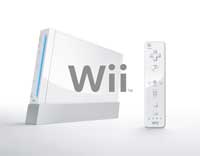 Graphics- 9/10
Graphics- 9/10Sound- 8.5/10
Gameplay- 8.5/10
Replay Value- 8.5/10
Overall- 8.5/10
The Splinter Cell series is still going strong. Since the original, many improvements have been made; such as lighting, graphics, and a lot more interactivity with the world in the game. But can Double Agent match up, or more importantly, improve on Chaos Theory, the 3rd part in the series which seemed to perfect Splinter Cell?
Many fans of this franchise have probably heard the talk of the new features of Double Agent; an all new out look on objectives in which the protagonist, Sam Fisher, faces decisions that could change the game dramatically. As the story begins, Sam is being placed into a different position than in previous game. As a double agent, Sam needs to gain the trust of the terrorist group he has infiltrated to ultimately stop them from within. Yet there are quite a few twists. Every level has several objectives for both the NSA(good guys) and the terrorist group, the completion of the objectives gains the trust of the side that gave you the order and everything is just peachy, right? Not really, many times you will find yourself choosing between two conflicting objectives, meaning that one side will trust you a little more, and the other will trust you a little less at the end of the level. As the game goes on, the decisions you make will build on top of one another to reach the ending; on which your choices will have a heavy effect. Although this has been used in some games before, this is pretty new to the Splinter Cell series. But the thing that matters is that this new aspect of game play really does make the game more interesting, or, in other words, more suspenseful, and suspense is the biggest part of having fun in a stealth game.
Now, on to the core game play. Veterans of previous Splinter Cell games will be at home in this part, as many of the previous moves are here, and that's great news as those game play features are fun to use, the problem is that not too many new things to do are found here. Besides the new double agent set up, this Splinter Cell feels much like it's predecessors. Expect to be on the edge of your seat most of the time, planning your moves carefully, and using gadgets and the environment to complete your objectives. That being said, the game play is very fun and that is great for new comers and Splinter Cell lovers, just don't expect anything dramatically different.
One very noticeable difference in Splinter Cell: Double Agent are the graphics. Everything from the hairs on Sam's rugged beard to the environmental details looks great. The visuals are very detailed, crisp, clean, and quite realistic. Although these aren't the juiciest graphics, it's still a visual feast, even on next gen standards. Sadly, though, there are minor graphical issues here and there, such as cloth and body interaction, but nothing serious. To go along with the visuals, the game's sound really does a great job. The music is very fitting and really sets the mood. And the sound effects are pretty realistic, although, the gunfire did seem a tad soft.
In the end, Splinter Cell: Double Agent does a good job of moving the series forward with the same, suspenseful game play, an intuitive double agent system that really makes a difference to the choices you make, crisp visuals, and clean sound. As well, being able to make choices that can change the game really ups the replay value. Splinter Cell: Double Agent is great for fans of the series and newcomers as well.
Pros:Suspenseful, fun game play. Double Agent feature adds to this. Very good graphics. decisions affect the game.
Cons: Game play not very different than previous Splinter Cell games.
Review: Vedran
* Also on Playstation 2, Gamecube, Playstation 3, Wii, Xbox, and PC. Review for 360 version only.












No comments:
Post a Comment